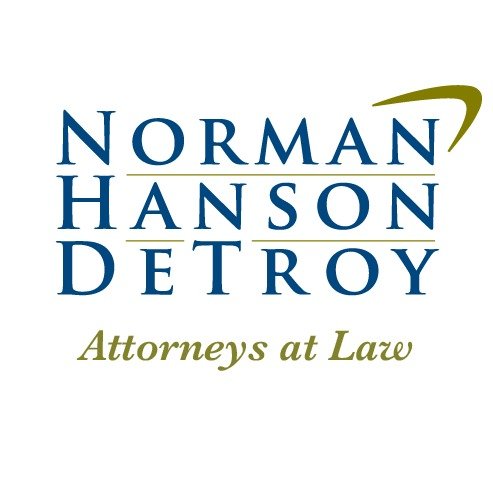Best Copyright Lawyers in Lewiston
Share your needs with us, get contacted by law firms.
Free. Takes 2 min.
List of the best lawyers in Lewiston, United States
About Copyright Law in Lewiston, United States
In Lewiston and across the United States, copyright law is a form of intellectual property protection that safeguards original works of authorship such as literary, dramatic, musical, and artistic works. Examples include novels, poems, movies, songs, computer software, and architecture. Under this law, copyright owners possess exclusive rights to reproduce their work, distribute copies, perform the work publicly, or to display it.
Why You May Need a Lawyer
You may need legal aid in cases related to copyright infringement, interpretation of copyright laws, copyright registration, and terms of use, among others. If you're dealing with copyright conflicts such as duplication of your work without consent, or if you feel as though your copyright has been exploited, it becomes crucial to hire an attorney. Lawyers will confer on your behalf, ensuring the protection and enforcement of your rights, even if the dispute goes to court.
Local Laws Overview
In Lewiston, Idaho, local laws and ordinances intersect with federal copyright laws to provide comprehensive protection for authors of original works. These laws are firmly in line with U.S. Copyright Act of 1976. In some instances, state-level implications such as those dealing with contract and business transactions, breach of confidentiality, and unfair competition may play a role in copyright issues.
Frequently Asked Questions
1. What does a copyright protect?
A copyright protects original works of authorship including artistic creations, novels, movies, songs, and more, giving the author or creator exclusive rights to control how their work is reproduced, distributed, and presented.
2. How long does a copyright last?
Typically, for works created after 1977, copyright protection lasts for the life of the author plus an additional 70 years. For anonymous works or works made for hire, the copyright lasts 95 years from publication or 120 years from creation, whichever is shorter.
3. Can I copyright a name, title, slogan, or logo?
Copyright does not protect names, titles, slogans, or logos. However, a logo can be protected as a trademark or service mark. Contact a legal expert for more clarity on this.
4. Do I need to register with U.S. Copyright Office to be protected?
While your work is under copyright protection the moment it is created, having your work registered can provide additional benefits, most notably it establishes a public record of the copyright claim.
5. What is considered as copyright infringement?
Any reproduction, distribution, display, or performance of copyrighted work without permission or a valid license from the copyright owner is considered copyright infringement.
Additional Resources
The U.S. Copyright Office is the most salient resource when it comes to copyright issues, offering extensive informative material and an online database of registered copyrights. Local resources like Idaho Volunteer Lawyers Program might also be useful for those who can't afford a lawyer but need legal help.
Next Steps
If you believe you need legal assistance regarding a copyright matter, you may want to engage a lawyer who specializes in copyright or intellectual property law. Bringing all relevant documents to the consultation and having a list of questions ready can help maximize the efficiency of your meeting.
Lawzana helps you find the best lawyers and law firms in Lewiston through a curated and pre-screened list of qualified legal professionals. Our platform offers rankings and detailed profiles of attorneys and law firms, allowing you to compare based on practice areas, including Copyright, experience, and client feedback.
Each profile includes a description of the firm's areas of practice, client reviews, team members and partners, year of establishment, spoken languages, office locations, contact information, social media presence, and any published articles or resources. Most firms on our platform speak English and are experienced in both local and international legal matters.
Get a quote from top-rated law firms in Lewiston, United States — quickly, securely, and without unnecessary hassle.
Disclaimer:
The information provided on this page is for general informational purposes only and does not constitute legal advice. While we strive to ensure the accuracy and relevance of the content, legal information may change over time, and interpretations of the law can vary. You should always consult with a qualified legal professional for advice specific to your situation.
We disclaim all liability for actions taken or not taken based on the content of this page. If you believe any information is incorrect or outdated, please contact us, and we will review and update it where appropriate.








